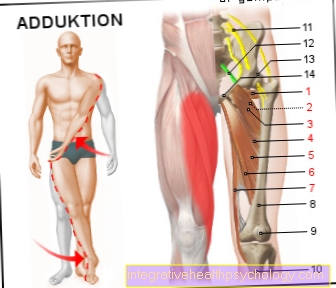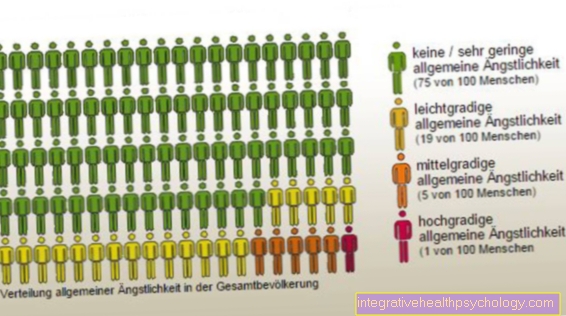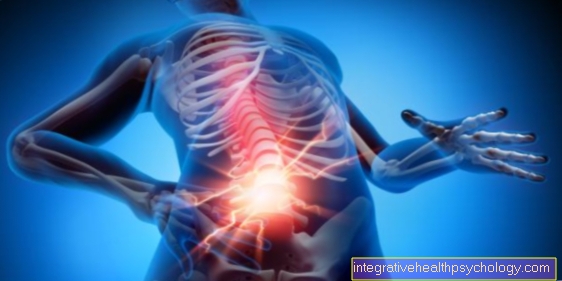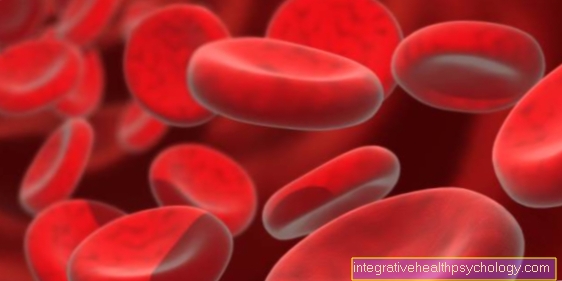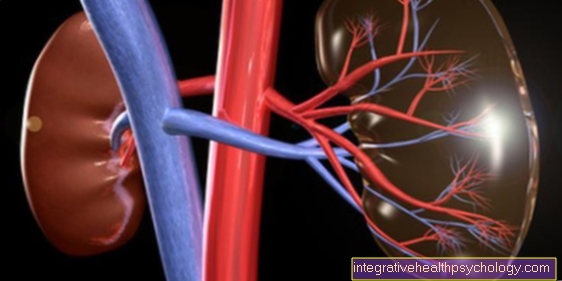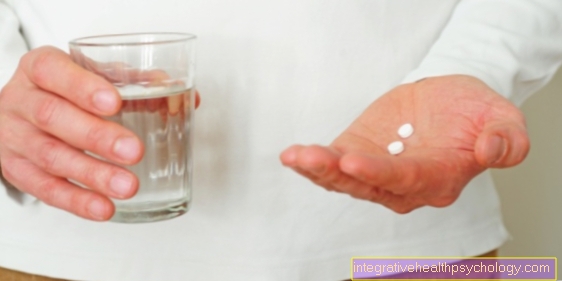Protein powder for muscle building
introduction
Fitness is becoming more and more of a trend - women usually want to become leaner and more defined, men want to be strong and muscular.
The hype about sport and fitness is fueling the industry and the consumer is confronted with more and more exotic shakes, bars, pills and other supplements. This is all about the classic - protein powder - and the question of whether and to what extent the intake of protein powder can support muscle building.

Does protein powder make sense for building muscle?
Muscle building describes the enlargement of the muscles by increasing the size of individual muscle fibers.
The stimulus for muscle building is increased stress on the muscle, for example through sport and targeted training. The growth stimulus leads to an increased build-up of muscle proteins. At this point the importance of protein intake becomes clear. Protein is part of the body's own proteins and some components of these proteins, the so-called essential amino acids, cannot be produced by the body itself. This results in the compulsory intake through the daily diet.
In building muscle, the body has an increased need for protein that must be met. An increased intake of protein not only makes sense in the context of muscle building, but is even a crucial prerequisite for success. It does not matter from which source the protein is obtained. In principle, protein from animal products does not seem to be superior to protein from plant sources.
Much more important is the biological value, i.e. the body's ability to absorb and convert protein. This can be increased by combining foods, which is why an increased protein intake is only one aspect of a balanced diet. Protein powders can complement a balanced diet because they have a higher protein content. However, the prerequisite for successful muscle building is the heavy use of the muscles through training.
In addition, athletes should also achieve a slight excess of calories in their diet.This means that the body is supplied with more energy than it consumes. Protein powder can also be helpful here, so-called weight gainers contain proteins as well as carbohydrates and are very high in calories.
For more information, also read: Protein powder - that's in it
When should I take protein powder to build muscle?
The myth of the "anabolic window" still haunts the fitness world. Accordingly, the intake of protein powder should be particularly effective in the first hour after training, since the absorption capacity of the body and muscles is particularly increased. However, this has been refuted several times. The regenerative processes of the muscle are still in full swing after hours or days.
After a training load, the body should be provided with sufficient protein throughout the day. Whether the protein shake is taken before or after training is of secondary importance. However, some consumers react to protein drinks with slight digestive problems, such as stomach pain, gas or even diarrhea, which makes it useful to take them after training.
also read: What should be considered when buying protein powder?
How much protein powder should I take to build muscle?
Protein powder should only serve as a supplement to a protein-rich, balanced diet. The average protein requirement is around 0.5 to 1 g per kilogram of body weight, and for athletes or bodybuilders it can even be up to 2.5 g per kilogram of body weight. With a body weight of 80 kg, this corresponds to 200 g of pure protein, for example. As a rule, athletes who train to build muscle should make their entire diet high in protein and have a calorie surplus. Depending on how much protein is absorbed through the diet, protein shakes can then serve as a supplement, but are not absolutely necessary.
An average serving of protein powder provides around 20 to 30 g of pure protein, so-called weight gainers with an extremely high calorie content, sometimes more than 50 g. Protein powder should not replace a healthy diet, only supplement it. A balanced diet usually doesn't require more than two additional servings of protein powder.
Read more at:
- Sports nutrition and muscle building
- Supplements for building muscle
Side effects of protein powder
Protein powders often contain milk proteins, which can cause symptoms in people with allergies and intolerances. If you suffer from a lactose intolerance or a milk protein allergy, these products must be avoided at all costs. Alternatively, vegetable protein powders such as soy powder can be used.
But even without a corresponding intolerance, many athletes react with complaints, especially at the beginning of a protein-rich diet. These include stomach pain, gas, nausea, and diarrhea. Some of the proteins leave the stomach incompletely split. The decomposition by bacteria in the intestine can result in gases that lead to the symptoms mentioned. The osmotic, i.e. water-binding effect of the proteins leads to diarrhea.
People with healthy kidneys can usually tolerate quite high amounts of protein. However, an excessive intake of proteins can damage the liver and kidneys in the long term, as more toxic metabolic products are produced. Ingesting protein powders in excess of the manufacturer's recommended amount should be avoided.
If you react to the protein powder with an intolerance that does not go away even after a while, you should stop taking it and consult a doctor.
You might also be interested in these topics:
- Protein-containing foods
- Creatine
What do I have to consider when buying protein powder?
Not all protein powders are the same. There are numerous suppliers, even more types and of course the most varied of flavors. While the latter depends on your personal taste, it is worthwhile to find out more about the different types of protein powders. Depending on the consumer’s goal, some products are more suitable than others.
- Whey isolates or hydrolysates, for example, have a particularly high protein content with a very low carbohydrate content.
- If you aim to build muscle and want to consume excess calories, you can use the so-called weight gainers. In addition to proteins, these also contain a large amount of carbohydrates and are very high in calories.
- So-called caseins, which should be taken before going to bed, are a slowly digestible and therefore constantly supplying source.
In the case of protein powders, it is worth taking a close look at the nutritional table. Many cheap products from the supermarket or drugstore have poorer values, such as a lower protein content. People with intolerances or even allergies to milk proteins should of course switch to appropriate alternatives. Vegetarians and vegans can also use alternative protein powders, e.g. made from soy protein, pea protein or hemp protein.
Further information can also be found at: What should be considered when buying protein powder?
Alternative supplements for building muscle
The basic requirement for successful muscle building is effective strength training.
This should exceed the muscle's load limit, because the body's mechanism of adaptation is the hypertrophy of the muscle cells, i.e. muscle building. Since this leads to an increased need for proteins, an adequate supply of proteins is another key to success. In addition, numerous supplements are offered in the ever-growing fitness industry that promise the consumer an even faster and more successful muscle building. None of these supplements are absolutely necessary to achieve success in training and in the mirror and no supplement can replace a balanced diet and demanding training.
First and foremost, high-quality protein sources from natural foods should be emphasized in the diet. In addition, you can invest your money in high-quality protein powder with a high protein content and good biological value. A balanced diet also includes the intake of fatty acids. Omega 3 in particular must be taken in through food, such as fish or nuts.
Those who follow a low-calorie diet and still want to meet their need for essential fatty acids can use fish oil capsules or vegetarian omega 3 capsules. Many athletes swear by so-called BCAAs - but these are simply the amino acids that are supplied in sufficient quantities in a balanced diet.
Creatine is also a popular product that occurs naturally in meat, fish and milk. It is part of the skeletal muscle fibers and is involved in muscle contraction. Creatine intake through supplements is not recommended for the average athlete; the high level of supplementation can also lead to flatulence and diarrhea in individual cases. At the beginning, water retention and thus weight gain can also be observed.
You may also be interested in this topic:
- Taking creatine
- Creatine powder
Why does the body need protein to build muscle?
Muscle building is a physiological reaction to an increased growth stimulus, which means that the muscle is stimulated during high training intensity.
Mainly, it is a question of a higher weight and, rather, a higher number of repetitions. The stimulation leads to an increased build-up of muscle proteins. This is a natural reaction of the body to small injuries to the muscle fibers that occur during training in order to protect them from future stress. Like all other proteins in the body, muscle proteins are made up of amino acids that are supplied by proteins through diet. This opens up the importance of protein intake in the context of muscle building. Since the need for proteins is increased, this must be met with a protein-rich diet.
Also read:
- Muscle building through vibration training
- Exercises to build muscle











